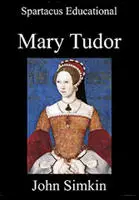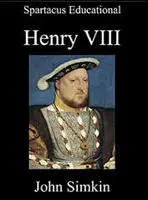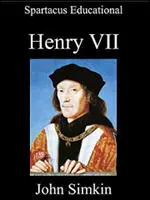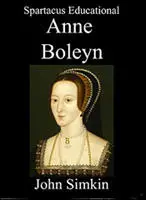Anthony Bacon
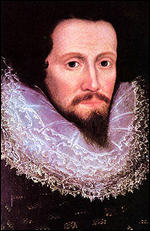
Anthony Bacon, the son of Sir Nicholas Bacon and his second wife, Anne Cooke Bacon, was born at York House in the Strand, London, in 1558. His father was Lord Keeper of the Great Seal under Queen Elizabeth. His mother was the daughter of Sir Anthony Cooke, the tutor to Edward VI. Through the marriages of his mother's sisters he was nephew to William Cecil, Lord Burghley. (1)
Bacon spent most of his childhood with his younger brother, Francis Bacon, at the family home at Gorhambury House, near St Albans. His mother who was fluent in Greek and Latin as well as in Italian and French, played an important role in his education. His schooling not only included Christian teaching but also thorough training in the classics. (2) From an early age, Anthony was prone to ill health: he recovered from a dangerous fever in 1560. (3)
Anthony and Francis (who had just turned twelve) went up to Trinity College on 5th April 1573. The brothers were put under the personal tutelage of the master, Dr John Whitgift, the future archbishop of Canterbury. (4) According to the accounts kept by Whitgift he bought for the Bacon brothers' use the major classical texts and commentaries. These included the Iliad, Plato and Aristotle, Cicero's rhetorical works, Demosthenes' Orations... as well as the histories of Livy, Sallust, and Xenophon". (5)
Anthony Bacon was admitted to Gray's Inn on 27th June 1576. His correspondence from the period shows that he was deeply influenced by his zealously nonconformist mother. She was a supporter of Thomas Cartwright the Puritan preacher. As Roger Lockyer has pointed out: "Cartwright, who was only in his mid-thirties, represented a new generation of Elizabethan puritans, who took the achievements of their predecessors for granted and wished to push forward from the positions that they had established. Cartwright declared that the structure of the Church of England was contrary to that prescribed by Scripture, and that the correct model was that which Calvin had established at Geneva. Every congregation should elect its own ministers in the first instance, and control of the Church should be in the hands of a local presbytery, consisting of the minister and the elders of the congregation. The authority of archbishops and bishops had no foundation in the Bible, and was therefore unacceptable. Cartwright's definition lifted the puritan movement out of its obsession with details and threw down a challenge which the established Church could not possibly ignore." (6)
Following his father's death in February 1579, and a bitter fight with his elder half-brothers, Bacon inherited estates worth £360 per annum, and the reversion of Gorhambury House on his mother's death. Bacon asked his uncle, William Cecil for help but he received "fair words, with no show of real kindness". (7)
Bacon decided to move to Paris where he began to provide intelligence reports for Sir Francis Walsingham. In November 1583 at the request of Robert Dudley, Earl of Leicester, he performed business for Queen Elizabeth. In August 1586 Bacon and one of his pages were accused of sodomy, a capital offence. However, there is no evidence he was charged with any offence. (8)
Anthony Bacon and Robert Devereux
On his return to England he worked closely with his brother Francis Bacon who had developed a close relationship with Robert Devereux, Earl of Essex. (9) He was one of Queen Elizabeth's most important advisers and since the death of Walsingham had taken command of the intelligence service. (10)
Essex was impressed with Anthony Bacon and decided to recruit him. As Alan Stewart has pointed out: "Anthony Bacon soon enhanced Essex's remarkable secretariat by co-ordinating (unpaid) a massive foreign intelligence operation with contacts across Europe, including Thomas Bodley, Sir Thomas Chaloner, Dr Henry Hawkins, John Napier, Sir Anthony Sherley, and Anthony Standen." (11)
Essex's biographer, Robert Lacey, has pointed out: "In the spring of 1592 Essex and the Bacon brothers found themselves outside the citadel of real political power: but possessing between them the intelligence, the industry, the contacts, the wealth and the pedigree they needed to force an entry. The story of the next six years is the story of how between them they did just that and carved out for themselves a position of potentially overwhelming might." (12)
The men joined forces in developing the case against Roderigo Lopez, the personal physician to Queen Elizabeth. As Anna Whitelock has pointed out: "As the Queen's physician, Lopez had a dual task: the preservation of the body of the Queen in her Bedchamber. Elizabeth liked and trusted him and granted him a valuable perquisite: a monopoly for importing aniseed and other herbs essential to the London apothecaries." (13)
Essex asked Thomas Phelippes to investigate Lopez. He discovered a secret correspondence between Estevão Ferreira da Gama, and the count of Fuentes, in the Spanish Netherlands. This was followed by the arrest of Lopez's courier, Gomez d'Avila. When he was interrogated he implicated Lopez. Phelippes also discovered a letter that stated: "The King of Spain had gotten three Portuguese to kill her Majesty and three more to kill the King of France". (14)
On 28th January 1594, Essex, wrote a letter to Anthony Bacon: "I have discovered a most dangerous and desperate treason. The point of conspiracy was her Majesty's death. The executioner should have been Doctor Lopez. The manner by poison. This I have so followed that I will make it appear as clear as the noon day." (15)
Essex employed Francis Bacon to write up the evidence against Roderigo Lopez and this was used against him at his trial. Sir Edward Coke, the Attorney-General, opened the trial by arguing that Lopez and his associates had been seduced by Jesuit priests with great rewards to kill the Queen "being persuaded that it is glorious and meritorious, and that if they die in the action, they will inherit heaven and be canonised as saints". He pointed out that Lopez was "her Majesty's sworn servant, graced and advanced with many princely favours, used in special places of credit, permitted often access to her person, and so not suspected... This Lopez, a perjuring murdering traitor and Jewish doctor, more than Judas himself, undertook the poisoning, which was a plot more wicked, dangerous and detestable than all the former." (16)
Coke emphasized the three men's secret Judaism and they were all convicted of high treason and sentenced to be hanged, drawn, and quartered. (17) However, the Queen remained doubtful of her doctor's guilt and delayed giving the approval needed to carry out the death sentences. William Cecil wanted to ensure that Lopez was executed to protect himself from a possible investigation. "From Cecil's point of view Lopez knew too much and therefore had to be silenced". (18) Roderigo Lopez, Manuel Luis Tinoco, and Estevão Ferreira da Gama were executed at Tyburn on 7th June 1594.
With the help of Robert Devereux, Earl of Essex, Anthony Bacon he represented Wallingford in the House of Commons. He bought a London house in the disreputable Bishopsgate Street, much to his mother's concern. She complained that the presence of nearby Butt Inn with its "continual interludes had even infected the inhabitants there with corrupt & lewd dispositions". Anne Bacon was also concerned about his relationship with the Spanish politician Antonio Pérez: ‘I would you were well rid of that old, dooted, polling papist. He will use discourses out of season to hinder your health, the want whereof is your great hindrance". She also thought he was far too close to the Earl of Essex. In 1596 Anne wrote: "You have hitherto been esteemed as a worthy friend now shall be accounted his follower… brought as it were into a kind of bondage". (19)
Bacon's health became steadily worse. "His failing eyes that needed almost constant medical attention... He had other ailments. Like so many Elizabethans whose predilections for foods like liver, brains, sweet-breads, spinach, rhubarb and asparagus built up solid material in the kidney he suffered from 'the stone'. Sharp pains would shoot through his back and side and blood flow in his urine as the deposit grew into a little crystalline marble that could kill a man. Seizures of gout made it almost impossible for him to hold a pen." (20)
Last Years
Following his successful raid on the Spanish navy in Cadiz, Bacon's patron, Robert Devereux, 2nd Earl of Essex, had a flaming disagreement with Queen Elizabeth. She was furious with Essex for giving the booty from Cadiz to his men. She ordered William Cecil to carry out an investigation into Essex's conduct of the campaign. He was eventually cleared of incompetence but it has been claimed that Elizabeth never forgave him for his actions. (21) Essex had hoped to be appointed to the prestigious and lucrative post of master of the Court of Wards. According to Roger Lockyer the Queen refused to give him what he wanted because she "distrusted his popularity and also resented the imperious manner in which he claimed advancement. (22)
| Spartacus E-Books (Price £0.99 / $1.50) | ||||||
|---|---|---|---|---|---|---|
In February 1597 Anthony's brother, Francis Bacon, decided that Essex was a dangerous man to be associated with and wrote to William Cecil apologizing for work he had carried out in the past on Essex's behalf that might have been opposed to those of Cecil's: "In like humble manner I pray your Lordship to pardon mine errors, and not to impute unto me the errors of any other... but to conceive of me to be a man that daily profiteth in duty." (23)
This was a sensible move because on 7th February, 1600, Essex was visited by a delegation from the Privy Council and was accused of holding unlawful assemblies and fortifying his house. Fearing arrest and execution he placed the delegation under armed guard in his library and the following day set off with a group of two hundred well-armed friends and followers, entered the city. Essex urged the people of London to join with him against the forces that threatened the Queen and the country. This included Robert Cecil and Walter Raleigh. He claimed that his enemies were going to murder him and the "crown of England" was going to be sold to Spain. (24)
At Ludgate Hill his band of men, that included his step-father, Sir Christopher Blount, were met by a company of soldiers. As his followers scattered, several men were killed and Blount was seriously wounded. Essex and about 50 men managed to escape but when he tried to return to Essex House he found it surrounded by the Queen's soldiers. Essex surrendered and was imprisoned in the Tower of London. (25)
On 19th February, 1601, Essex and some of his men were tried at Westminster Hall. He was accused of plotting to deprive the Queen of her crown and life as well as inciting Londoners to rebel. Essex protested that "he never wished harm to his sovereign". The coup, he claimed was merely intended to secure access for Essex to the Queen". He believed that if he was able to gain an audience with Elizabeth, and she heard his grievances, he would be restored to her favour. Essex was found guilty of treason and was executed on 25th February. (26) Queen Elizabeth forced Anthony Bacon to leave Essex House but for health reasons he was not suspected of being involved in the Essex conspiracy. (27)
Anthony Bacon died a few months later and was buried on 17th May 1601.
Primary Sources
(1) Alan Stewart, Anthony Bacon : Oxford Dictionary of National Biography (2004-2014)
Anthony Bacon was admitted to Gray's Inn on 27 June 1576, studying under Richard Barker; his correspondence from the period shows an interest in the puritan Thomas Cartwright's writings against his erstwhile tutor Whitgift, an interest encouraged by his zealously nonconformist mother. Following his father's death in February 1579, and a bitter fight with his elder half-brothers, Bacon inherited estates worth £360 per annum, and the reversion of Gorhambury on his mother's death (she outlived him by nine years). An earlier attempt to marry him profitably had failed, and now at twenty-one, with personal assets that he could mortgage, he decided to go abroad. In December 1579, armed with letters of recommendation from Burghley and the French ambassador, Michel de Castelnau, seigneur de Mauvissière, he set off to Paris, where he began to provide intelligence reports for Burghley and Sir Francis Walsingham, principal secretary, and made a lifelong friend and correspondent in the latter's secretary, Nicholas Faunt.
(2) Elizabeth Jenkins, Elizabeth the Great (1958)
The tone among the men of Elizabeth's last circle was one of clamorous self assertion, varied by a passionate sense of ill-usage, amounting to stark tragedy, if their material ambitions were postponed or thwarted. This was notably so in Raleigh and Essex, and more discreetly expressed it was found in the third faction, the two sons of the late Lord Keeper, Antony and Francis Bacon. One was exceedingly able and the other a genius, but their uncle by marriage, Lord Burleigh, did not advance them. The Lord Treasurer wanted to keep all his benefits for his son Robert Cecil, clever, dearly loved of his father and a hunchback. The latter was eminently prudent and well-behaved; the rest eyed the Queen like famished hounds and snarled if she gave something to anybody else.
(3) Robert Lacey, Robert, Earl of Essex (1971)
Anthony roamed the courts of Europe as a freelance spy cum scholar. He sent back intelligence reports on diplomatic developments to Sir Francis Walsingham in London, and picked up extra money as a secretary and adviser who could command a variety of languages and an ever-widening circle of contacts.
Though troubled by weak eyes, gout and the stone he lived on his wits, and when to the joy of Francis and his mother he decided to return to England early in 1592, he was an accomplished and valuable asset to any courtier with serious political ambitions. How Essex and the Bacon brothers came together at this critical juncture in all their careers is uncertain. Francis and Essex had probably met before. And the whole trio had connections with Lord Burghley which the old man had at various times gently but firmly declined to turn into obligations: two penniless title-less and somewhat over-intelligent brothers had little to offer a man endowed with all the intelligence he needed: and the Earl of Essex had been tied too obviously to the Leicester bandwagon to expect success from his attempts to chum up with Lord Burghley's faction. Besides, Burghley had his own son Robert whom he was grooming for future office.
So in the spring of 1592 Essex and the Bacon brothers found themselves outside the citadel of real political power: but possessing between them the intelligence, the industry, the contacts, the wealth and the pedigree they needed to force an entry. The story of the next six years is the story of how between them they did just that and carved out for themselves a position of potentially overwhelming might: and the story of the three years following - which ended with that private execution in the Tower of London - is the story of how the Earl of Essex threw away all that the three of them had so skilfully achieved.
Student Activities
Henry VIII (Answer Commentary)
Henry VII: A Wise or Wicked Ruler? (Answer Commentary)
Henry VIII: Catherine of Aragon or Anne Boleyn?
Was Henry VIII's son, Henry FitzRoy, murdered?
Hans Holbein and Henry VIII (Answer Commentary)
The Marriage of Prince Arthur and Catherine of Aragon (Answer Commentary)
Henry VIII and Anne of Cleves (Answer Commentary)
Was Queen Catherine Howard guilty of treason? (Answer Commentary)
Anne Boleyn - Religious Reformer (Answer Commentary)
Did Anne Boleyn have six fingers on her right hand? A Study in Catholic Propaganda (Answer Commentary)
Why were women hostile to Henry VIII's marriage to Anne Boleyn? (Answer Commentary)
Catherine Parr and Women's Rights (Answer Commentary)
Women, Politics and Henry VIII (Answer Commentary)
Historians and Novelists on Thomas Cromwell (Answer Commentary)
Martin Luther and Thomas Müntzer (Answer Commentary)
Martin Luther and Hitler's Anti-Semitism (Answer Commentary)
Martin Luther and the Reformation (Answer Commentary)
Mary Tudor and Heretics (Answer Commentary)
Joan Bocher - Anabaptist (Answer Commentary)
Anne Askew – Burnt at the Stake (Answer Commentary)
Elizabeth Barton and Henry VIII (Answer Commentary)
Execution of Margaret Cheyney (Answer Commentary)
Robert Aske (Answer Commentary)
Dissolution of the Monasteries (Answer Commentary)
Pilgrimage of Grace (Answer Commentary)
Poverty in Tudor England (Answer Commentary)
Why did Queen Elizabeth not get married? (Answer Commentary)
Francis Walsingham - Codes & Codebreaking (Answer Commentary)
Sir Thomas More: Saint or Sinner? (Answer Commentary)
Hans Holbein's Art and Religious Propaganda (Answer Commentary)
1517 May Day Riots: How do historians know what happened? (Answer Commentary)


